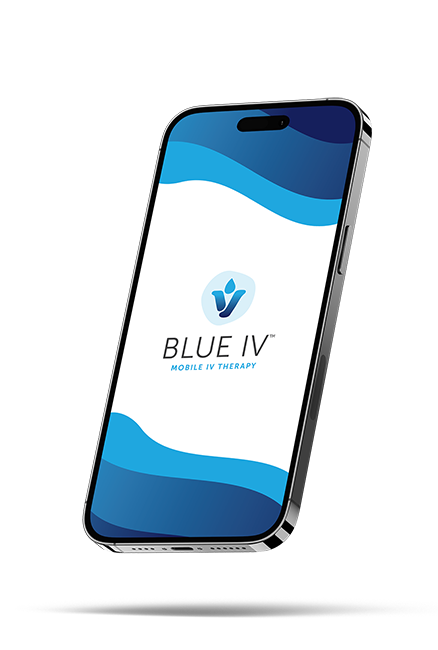You’re a busy nurse who’s gotten even busier with your new side gig as an IV mobile therapy nurse. So, when questions come up (whether they’re from a patient or you need the information to perform your job) you need answers as quickly as possible.
The good news is we understand, which is why we provided nurses who work for us with the Blue IV Quick Vitamin Guide that includes information about the ingredients in every one of our treatments, how to administer them, and more. But there are bound to be questions that aren’t addressed in the guide! Read on for easy and quick ways to get the answers that you need from the internet to be the fantastic mobile IV therapy nurse that you are.
The internet is great, but is it trustworthy for health-related questions?
We’ve all been there: You have some sort of ailment that lingers and rather than going to the doctor you decide to go ahead and search the Internet. Then, a couple hours later, what was just an ache has now turned into stage 4 cancer based on misinformation. While we love the web, it can be a breeding ground for misinformation.
For example, during the pandemic (and even after it was declared over) scammers have been tricking anti-vaxxers into buying fake vaccination certificates. And articles that claim things like dandelion weed can cure cancer are very popular (it was the most popular article with the word “cancer” in the title on Facebook the year it was released)
So, what are you supposed to do when you’re on the job and need a health-related question answered quickly? There are sites that you can trust. Read on to find them.
1. The National Institutes of Health
What do they do?
“The National Institutes of Health (NIH), a part of the U.S. Department of Health and Human Services, is the nation’s medical research agency — making important discoveries that improve health and save lives.”What’s the search like?
They have a nice, robust search engine that’s easy to use and spits out information quickly.2. Centers for Disease Control and Prevention
What do they do?
“CDC is the nation’s leading science-based, data-driven, service organization that protects the public’s health. For more than 70 years, we’ve put science into action to help children stay healthy so they can grow and learn; to help families, businesses, and communities fight disease and stay strong; and to protect the public’s health.”What’s the search like?
They have a search box prominently displayed on their home page, but it may be a hit or miss when you’re searching for information about vitamins.3. USA.gov
What do they do?
“The USAGov program creates and organizes timely, needed government information and services and makes them accessible anytime, anywhere, via your channel of choice.”What’s the search like?
While it may not seem like an obvious choice to do at a search on things like vitamins, the site has plenty of information about them.4. MedlinePlus.gov
What do they do?
“MedlinePlus.gov is a service of the National Library of Medicine, the world’s largest medical library, which is part of the National Institutes of health (NIH). [Their] mission is to present high quality, relevant health and wellness information that is trusted, easy to understand, and free of advertising in both English and Spanish. Anywhere, anytime, on any device — for free.”What’s the search like?
We love it! You’ll be able to find pretty much any information you need easily using their prominently displayed search box.5. Finding other trusted sites
There are other online trusted sites, but you’ll just have to determine for yourself if a site is trustable and you can use the following questions (provided by the National Institute of Aging) to help you get there.
What is the purpose of the website and who owns or sponsors it?
Find out why the site was created — what’s the purpose? If it looks like the owners simply want to provide some trustworthy information then go for it.
What/who is the source behind the information?
If you can find out who’s responsible for the content of the site that can help you determine if it’s trustworthy. For example, if the owners are healthcare professionals or perhaps someone who works in the science field that’s likely to be a good source.
But the NIA warns “Be cautious about testimonials, individual blogs, and posts on discussion boards. Personal stories may be helpful and comforting, but not everyone experiences health problems the same way. Also, there is a big difference between information written by a single person interested in a topic and a website developed by professionals using researched and peer-reviewed scientific evidence.”
Is the information current?
There should be a way to determine when most of the content was posted — most sites have blogs that should have a date at the top of each article. So, you can do a quick search and likely answer that question quite easily. Also, generally the more current the information is the better.
Are they asking for health information?
There really shouldn’t be any reason for you to have to share your health information so if a site is asking for it that can be a red flag.
Does the site promise miracle cures?
This can be a very easy red flag—like the old adage says, if it sounds too good to be true it probably is so don’t trust the site.
Find trusted information quickly so you can do what matters most
At the end of the day your main motivation is to help your patients. And we want to make that as easy as possible, so we hope that these resources are going to help you find the answers to your questions—easily, quickly and, most important, reliably.

